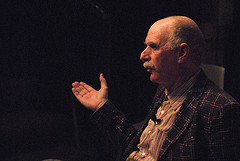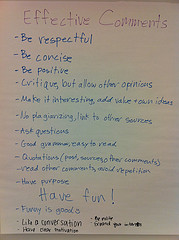Improve the Writer/Commenter Relationship by Leaving Moderation to Moderators
In “Closing Comments Alters Your Purpose,” I discussed how the existence of comments on your website informs the purpose of your website. This was inspired by Evan Hamilton, who was in turn commenting on an article by Alexandra Petri of The Washington Post.
While Petri’s article was interesting and raises some good points, I really feel like Petri’s representation both ignores community as a profession and undervalues the relationship that a writer can have with the people who consume their work. That doesn’t mean I think comments should be everywhere or that everyone needs them. I don’t.
But the article begins with this aggressive condemnation of comments as a whole (emphasis mine):
Read More




 When viewing products on Amazon.com, you may notice a section on the product page labeled “Customer Questions & Answers.” For example, on the page for the
When viewing products on Amazon.com, you may notice a section on the product page labeled “Customer Questions & Answers.” For example, on the page for the 

 When you have a choice of where you do business, you tend to go with the company that you have had a better experience with. Many would refer to that as common sense. Any decent company tries to provide the best customer experience that they can. But when deciding what level of resources you can invest in customer experience, there is a question of how much it is actually worth to the company. What is the value of improving customer experience? That’s what
When you have a choice of where you do business, you tend to go with the company that you have had a better experience with. Many would refer to that as common sense. Any decent company tries to provide the best customer experience that they can. But when deciding what level of resources you can invest in customer experience, there is a question of how much it is actually worth to the company. What is the value of improving customer experience? That’s what 